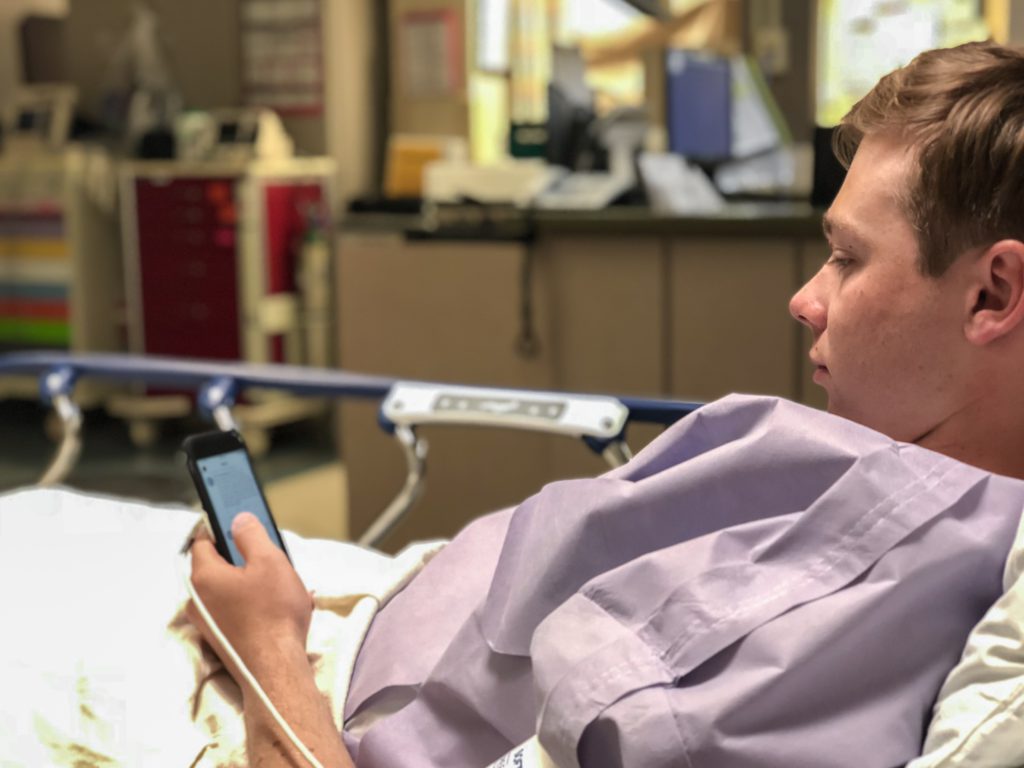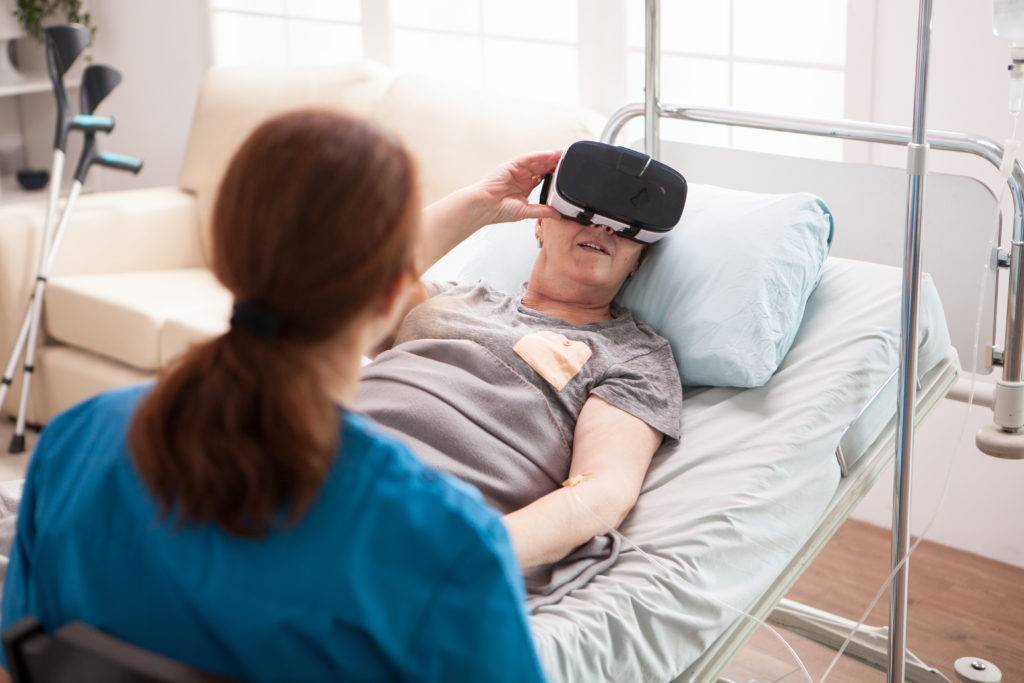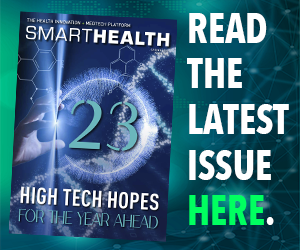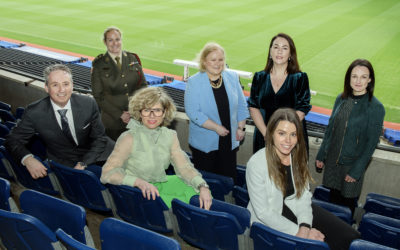If we end up remembering last year for nothing else, it will be for coronavirus, and talk of the Metaverse consuming tech. But as we get used both to working from home, and receiving more of our health care there, will the new metaverse – which has been described as a 3D internet populated by real people – come to boast an increasing island for medicine?
And how ready for all this is the nonvirtual island that is Ireland? A health care metaverse certainly stands to serve Ireland well. Currently 1.8 million people live in rural Ireland, where it can make for an awkward journey to visit Dublin
teaching hospitals like St James’s and St Vincent’s.
So popping on a pair of virtual reality glasses for a quick doctor’s appointment starts to sound like a good option if you’re in Monaghan, Roscommon and Clare. Each of which has an average travel distance of over 40 km to an HSE adult emergency department or maternity
hospital.
Breaking silos >>>
The metaverse “has the ability to help us overcome some of the challenges to digital adoption,” says Clare Harney, executive director at HealthTech Ireland, a member-based trade association for the Irish health technology industry. Digital adoption is an area where
Ireland is “a bit behind, but we’re accelerating,” especially after adopting new digital technology during the pandemic like Covid tracking software.
But the metaverse could provide an opportunity to catch up where Ireland has lagged, like interoperability – making different systems able to talk to each other. “We have a lot of siloed data, and it isn’t helping anybody when it’s stuck in silos,” she says.
This is because “we’ve historically adopted new technology but replicated paper-based processes.”
Interoperability is important so when one system reports a reading as 12, the next system knows the correct unit for that number. The metaverse might offer helpful ways, say, to monitor long-term covid patients in their own home, but they might sometimes need to go in to a GP surgery or to hospital, too.
“If we can’t link up those processes of care, we’re not fully reaping the full benefit – it would be replicating that silo approach,” says Harney. This is so when patient records move between GP surgeries, nursing homes, and health providers in the metaverse, all of them can feel confident “the Mary Murphy over there is the same Mary Murphy as this one, but not the same as that Mary Murphy over there,” she says. “It’s a huge patient safety risk if people’s records are mixed up.” Communication between health bodies tends still to be paper-based, and inefficient, even today, she says.
“If you have your physiotherapist use VR to help you in your home, and they want to communicate your progress to your GP or hospital, they still print a letter and they post it,” she says. And this is “not very cost effective, it’s inefficient, and it often doesn’t make it into a record”.

Ireland of the devices >>>
Helpfully, for getting a green foothold in the medical metaverse, “Ireland is a big, big ecosystem for devices,” says John Lee Allen, a surgeon turned seed investor in health tech who has worked closely with Enterprise Ireland and Trinity College. This is because “a lot of the big tech and pharma players are based in Ireland,” and also the energetic nature of Enterprise Ireland as “a big state backer of innovation and venture investment”.
And Brexit has been “a net positive for the Ireland medical tech scene”, with companies now thinking of Ireland as a gateway to the EU, says Allen, now managing partner at RYSE Asset Management. In terms of early adopters, the medical metaverse will appeal to providing engaging ways of treating younger patients with complex health needs and special educational needs, predicts Allen.
It can also bring a level of anonymity which can be helpful with more embarrassing medical problems, like menopause, erectile disfunction and hair loss. Also, “there’s nothing like running out of money which becomes a necessity for innovation,” and the pandemic has put pressure on all the players within health care, he says.
As a general rule, the players within health care did not do well out of the last two years, he says. “Health care as an industry was designed to make money from procedures,” and health providers have been compensated less for their role in a “wartime footing of a public health crisis,” he says. Meanwhile, Irish venture capital, including funders of new medical technology, is in “early development” compared with the gargantuan ecosystem in London.
“At the moment, I would say the whole of Ireland is kind of equivalent to the Cambridge ecosystem, something like a quarter or a fifth the size of the London ecosystem,” he says. London, in turn, is perhaps a tenth of the size of the Silicon Valley ecosystem. As the Irish ecosystem of seed, angel, and venture investors grows, founders will be more inclined to stay here rather than pack their bags and take their
ideas to the bigger ecosystems.

Saying fáilte to the metaverse >>>
In a small country like Ireland, there will always be challenges finding people with the right skills. Mobile centric delivery “is always a hard skill set to find, says Gavin Fox, who founded Dublin Tech Talks and works in technology recruitment as a director at Martinsen Mayer.
Much of it is hardware based which requires “nontraditional hires”, compared to finding programmers adept in C++, Objective-C, or Swift.
Meanwhile, the 3D game engines like Unity and Unreal which are used in this space are “again, non-traditional,” he says. Professionals well versed in design and graphics, on the other hand, are “easier to find”. And places like Dublin’s Code Institute, which runs a well-regarded
600-hour Coding Bootcamp, “are helping with engineering skills like Python”. In the metaverse, Meta has been the main company hiring in Ireland.
“They have been hiring in Cork for a number of years in this space but Irish businesses haven’t been ignoring this space at all,” says Fox.
3D4Medical and VR Education have been “leading the charge in Ireland”.
The former, an Irish company whose 3D anatomical visualisation platform Complete Anatomy has won 1.2 million users and ‘Best of the Year’ awards in the Apple App Store, secured a ¤45million profitable exit when Elsevier bought it at the end of 2019.
It is “one of the highlights of the Irish scene,” he says. Mary O’Brien’s videoDoc, which launched Ireland’s first 24-hour video doctor-on-demand service, was sold for £40,000 in February 2020, just on the eve of Coronavirus, to the UK group Advinia Health
Care.
It was relaunched, under Advinia’s chairman Dr Sanjeev Kanoria, with a lower marketing budget and more slimline staff. All this benefits from a thriving Irish med tech scene broadly, which saw LetsGetChecked, the Irishbased at-home health testing firm started by Peter Foley, achieve unicorn status with a valuation of $1billion after its $150million series D funding round last June.
Software company Qualio, makers of a pharmaceuticals quality management platform which Robert Fenton founded in Dublin before taking its headquarters to Silicon Valley, maintains a Dublin presence too. Qualio attracted another $50million in funding last May, as companies rolled out new products amidst Coronavirus. Institutional medical Ireland is getting on board with the metaverse, too.

Claire Harney also directs a programme for leading digital health transformation at the Royal College of Surgeons of Ireland. The existence of the programme is an example of how institutions like a “very traditional medical university” are embracing digital health, she says. It is still, by any stretch of imagination, early days for health and the metaverse. Especially in Ireland.
“It has some value for training manufacturing staff, but generally it has not yet taken off”, admits Myles Muray, chief executive at PMD Solutions, a medical equipment manufacturer in Cork.
“This area does not have a lot of utility to us yet,” he says. But as far as the sector’s engagement with the metaverse, “this is not to say it isn’t there or isn’t growing”. Even Meta, the company formerly known as Facebook until it changed its name to signal its aspirations to rule the metaverse, is really only starting to explore how health care and the metaverse might play out.
“As we’re still at the beginning stages of building our contribution to the metaverse, our narratives on specific areas like health are still quite topline,” notes Kelley Cousins, Meta’s head of communications in Ireland.
Meanwhile, as Ireland improves its broadband infrastructure, especially in rural areas, it will become more match day fit for the metaverse, too. If broadband is what the metaverse arrives on, then speeding up the lagging national broadband initiative will help get it here sooner. “I’m in Wicklow, and the fastest I can get is 100 megabits per second. I’m not in gigabit speeds and I’m not that far from Dublin,” says Harney.






